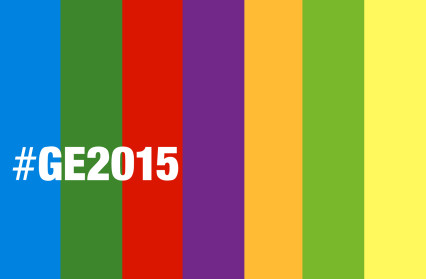Dr Bela Arora looks at the influence that the television debates have on voting behaviour.
The impact of televised political debates has been widely questioned. There have been oft quoted examples of how debates have been gamer changers, such as the 1960 Presidential clash between Nixon and Kennedy, but this is not the norm. Televised debates, however, are likely to be a permanent fixture in UK political campaigns and have ultimately succeeded in engaging the broader electorate. YouGov data from 2010 suggested that televised debates effectively reached out to voters between 18 and 24 years old as oppose to more traditional political campaigning tools focusing on the grey vote. It also had particular impact in engaging first time voters. It is less certain whether the increased outreach through televised debates can translate into votes. It is also unclear whether the electorate feel better informed about the varying political positions. The real impact may simply be in terms of audiences’ perception of candidates’ image.
Research suggests that televised political debates do not necessarily change our perception of the mainstream leaders but there are significant gains to be made by parties who some may consider to be closer to the margins. In the case of the recent televised leaders debates, there were no great wins for Cameron, Miliband or Clegg in terms of public perception but there were significant wins for the SNP, Plaid Cymru and the Green Party. Plaid Cymru perhaps had the lowest profile across the UK, yet, whilst they may not make it to the final table of decision making, the party has certainly boosted its profile.
Televised political debates often improve our understanding of political party positions but only on a narrow range of topics. There may be increased awareness relating to the debate on the key questions posed by the selected members of the studio audience, but this does not mean that the viewer will necessary take the next step in reading the party manifesto and seeking out the underpinning values of the party. It can be a challenge for even seasoned political commentators to identify some of the differences in the details but the televised debates certainly give the audience a useful snapshot of the party and the personalities.
There are, however, serious concerns that the personalities can potentially overshadow the policies themselves. There is a danger that the politicians become liabilities to their own parties, simply because they have been unable to connect with the audience or appear insincere. It therefore follows that viewers could be less inclined to vote for a party if they are not drawn to the politician, even if they would in other circumstances align themselves with the party politics. The communication and delivery of key messages is key and the viewers can be rather unforgiving of gaffes, hesitation or lack of confidence. If we take lessons from professional public speaking, research suggests that the audience will always be captured by the delivery more than the content. According to social psychologist Albert Mehrabian, words only count for 7% of overall message delivery. Voice, tone and most importantly, body language account for the bulk of impact.
It can be useful to couple analysis of televised debates with that of associated social media ‘chatter’. That is to say that analysis of the televised election debates should not just focus on viewing figures alone as that ignores the after burn effect of continuing comment on social media. Over a third of those aged 18-24 said their vote would be influenced by something they read on social media. This would suggest that the political parties can potentially build on the immediate impact of televised debates and any related bounce in the polls by harnessing the power of social media to extend the platform of discussion.
In sum, it is worth reinforcing that televised debates represent one communications data point in a political campaign. The polls have a tendency to fluctuate immediately following a debate but this does not represent a longer term perspective on public opinion and voter behaviour. Some would argue that televised debates may have had a role to play in increasing voter turnout in the 2010 General Election, but determining whether they influence the outcome is not so clear. Looking ahead, televised debates are likely to remain a dimension of how the campaigning game is played, but are unlikely to decide the game itself.












